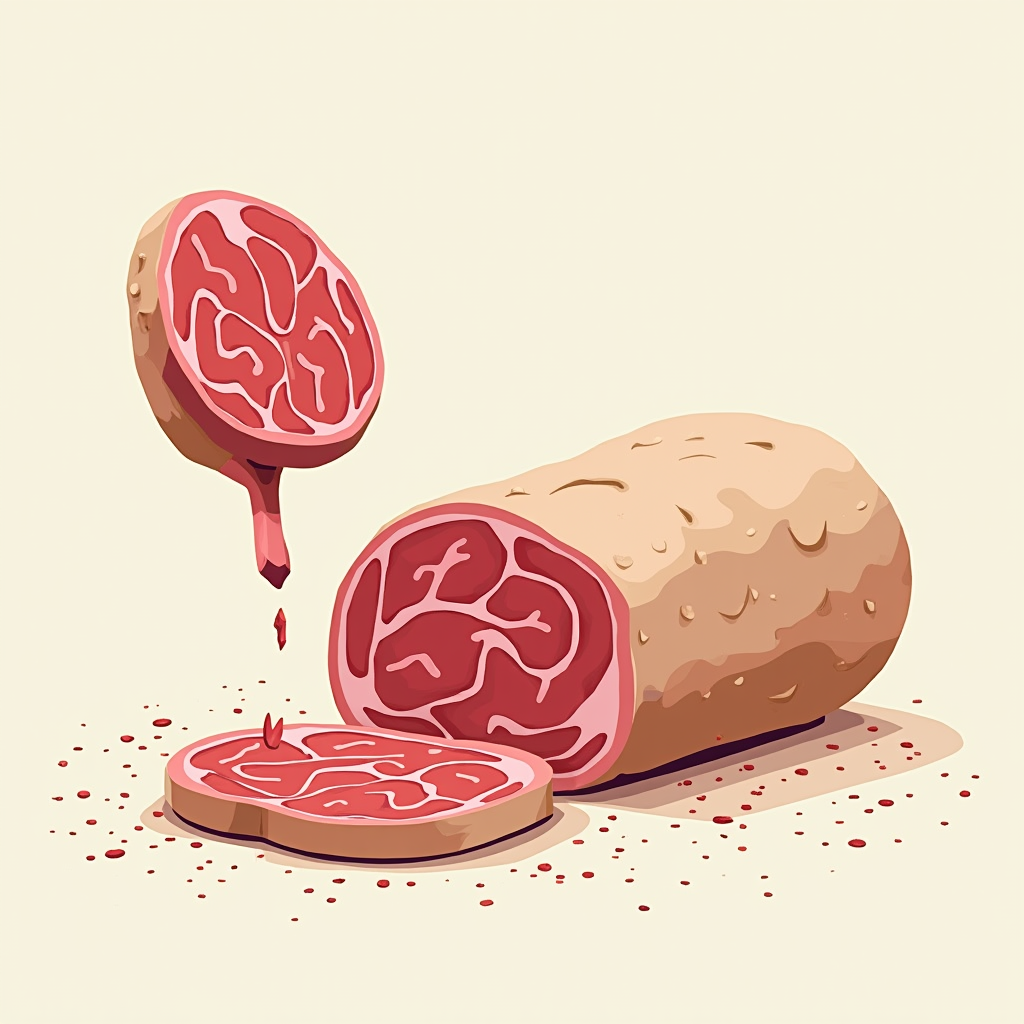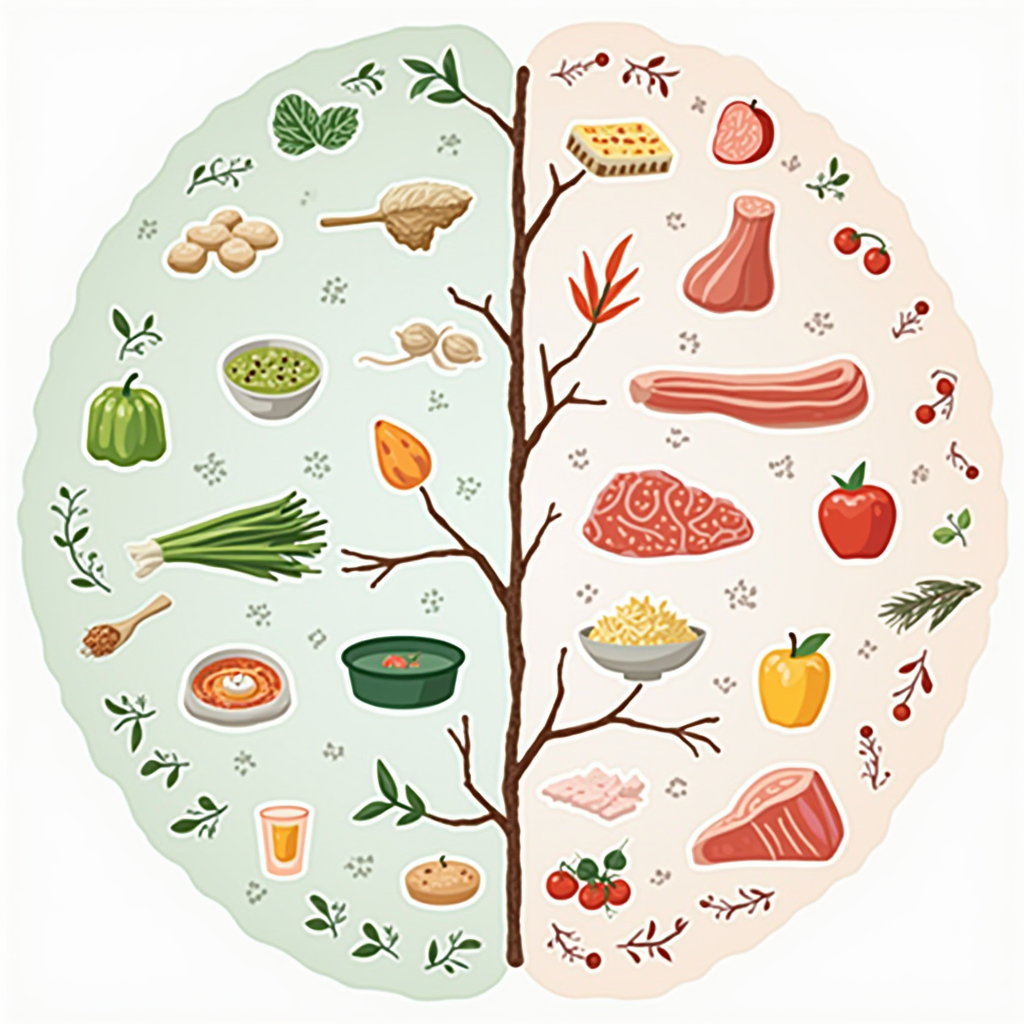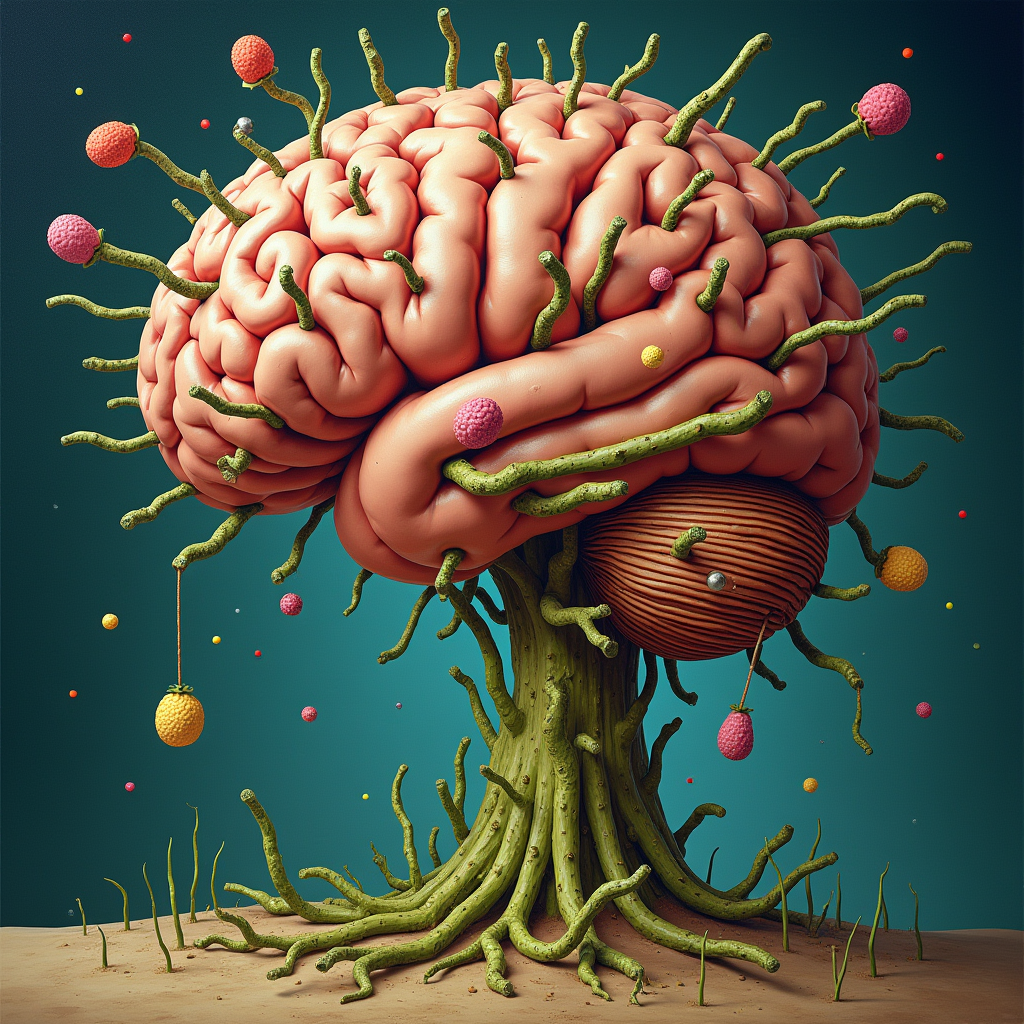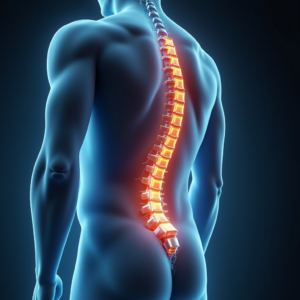Discover the surprising link between your favorite meats and your brain health – you won’t believe what recent research has uncovered.

The Surprising Link Between Red Meat and Brain Health
A groundbreaking study published in Neurology®, the medical journal of the American Academy of Neurology, has revealed a concerning connection between red meat consumption and cognitive decline. The findings suggest that individuals who consume higher amounts of red meat, especially processed varieties like bacon and sausage, may face an increased risk of dementia and faster brain aging compared to those who limit their intake.

Processed Meats: A Hidden Threat to Your Mind?
After adjusting for factors such as age, sex, and other risk factors for cognitive decline, the researchers found that participants who consumed an average of 0.25 servings or more per day of processed red meat had a staggering 14% higher risk of subjective cognitive decline compared to those who ate fewer than 0.10 servings per day. Subjective cognitive decline refers to an individual’s self-reported memory and thinking problems before any measurable decline on standard tests.

Unveiling the Cognitive Risks of Bacon and Sausage
The study’s findings are particularly alarming for those who enjoy processed red meats like bacon, hot dogs, sausages, salami, and bologna. Researchers discovered that higher consumption of these processed products was associated with faster brain aging in both global cognition and verbal memory. Each additional serving per day was linked to a staggering 1.61 years of accelerated cognitive aging in global cognition and 1.69 years in verbal memory.

Could Your Favorite Deli Meats Be Harming Your Memory?
But the risks don’t stop there. Even unprocessed red meats, such as beef, pork, lamb, and hamburgers, were found to contribute to cognitive decline. Participants who consumed one or more servings of unprocessed red meat per day had a 16% higher risk of subjective cognitive decline compared to those who ate less than half a serving per day. While the study did not find a direct link between unprocessed red meat and dementia risk, the potential impact on memory and thinking skills is concerning.

The Startling Truth About Red Meat and Dementia Risk
Perhaps the most alarming finding of the study is the increased risk of dementia associated with processed red meat consumption. After adjusting for various risk factors, researchers found that participants in the high consumption group (0.25 or more servings per day) had a 13% higher risk of developing dementia compared to those in the low group (fewer than 0.10 servings per day).

Swap Burgers for Brain Power: Exploring Healthier Protein Choices
The good news is that the study also identified potential solutions. Researchers found that replacing one serving per day of processed red meat with one serving of nuts and legumes was associated with a 19% lower risk of dementia and 1.37 fewer years of cognitive aging. Making the same substitution for fish was linked to a 28% lower risk of dementia, while replacing processed red meat with chicken was associated with a 16% lower risk.

Protecting Your Mind: Is It Time to Rethink Your Red Meat Intake?
The study’s lead author, Dr. Dong Wang of Brigham and Women’s Hospital in Boston, emphasizes the importance of these findings: “Reducing how much red meat a person eats and replacing it with other protein sources and plant-based options could be included in dietary guidelines to promote cognitive health.” As the research continues to uncover the link between diet and brain health, it may be time to reevaluate your red meat consumption habits.

Unraveling the Mysteries of Diet and Cognitive Decline
While the study provides valuable insights, more research is needed to fully understand the complex relationship between diet and cognitive function. Dr. Wang acknowledges the need for further assessment in diverse groups, as the current findings may not be universally applicable. As scientists continue to explore this topic, it is crucial for individuals to stay informed and make informed dietary choices to support their overall brain health.

Unlock the Secrets to Preserving Your Mental Sharpness
The American Academy of Neurology, the leading voice in brain health, offers a wealth of resources to help individuals navigate the latest research and recommendations for maintaining cognitive function. By exploring Brain & Life®, a comprehensive platform featuring magazines, podcasts, and expert insights, you can gain access to trusted information and strategies for preserving your mental sharpness as you age.















